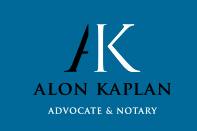
To establish a private trust company in Israel, you need to register with the Israeli Registrar of Companies, ensuring it meets legal entity requirements. The Bank of Israel oversees trust companies for financial compliance. Essential documents, like the articles of association, need attorney certification. The setup process is swift and cost-effective, with no nominal capital deposit required. Operational management and a unique company name are vital, offering stability and potential benefits if explored further.
Key Takeaways
- Register the private trust company with the Israeli Registrar of Companies to establish its legal entity status.
- Obtain approval for a unique company name to ensure distinct identification.
- Submit essential documents, including articles of association, certified by an attorney.
- No nominal capital deposit is required, making the establishment process cost-effective and quick.
- Ensure compliance with Bank of Israel’s financial requirements for trust company operations.
Understanding the Legal Framework for Trusts in Israel

When establishing a private trust company in Israel, understanding the legal framework for trusts is vital. A trust, by definition, is a relationship where a trustee holds property for beneficiaries’ benefit. Israeli law acknowledges three trust types: Israeli resident grantor trusts with Israeli beneficiaries, foreign resident grantor trusts with Israeli beneficiaries, and Israeli resident grantor trusts with foreign beneficiaries. It’s important to recognize that trusts in Israel don’t have legal entity status nor legal personality. Trusts are created through a contract, deed, or behavior, such as testamentary or constructive trusts. Family trusts, another significant category, are considered Israeli resident beneficiary trusts if the settlor and beneficiaries share immediate family relationships. The Law of Trust governs the establishment and administration of trusts, providing a comprehensive legal foundation for trust-related activities in Israel. For those engaging in legal research, HeinOnline provides comprehensive resources that can aid in understanding the nuances of trust law. Understanding these trust definitions and types is paramount to traversing Israel’s trust landscape.
Key Components of Establishing a Private Trust Company
Establishing a private trust company in Israel involves several key components that require careful consideration and adherence to legal protocols. First, creating a legal entity is essential, whether it be a company or partnership, and you’ll need to register with the Israeli Registrar of Companies. Regulatory oversight is vital, as the Bank of Israel supervises trust companies, ensuring compliance with financial requirements. Essential documents, such as the articles of association and director and shareholder declarations, must be certified by an attorney. In Israel, the establishment process of a private company is known for being quick and cost-effective, as it does not require a deposit of nominal capital, making it appealing for many entrepreneurs. Operational management involves trustee and shareholder arrangements, with unique company names approved by the Registrar. The firm’s expertise in Trusts and Estates ensures that the establishment of a private trust company is aligned with international legal standards and best practices. Finally, shareholder arrangements require careful management, including escrow and trustee considerations, to comply with regulatory standards and maintain proper operational structure.
Navigating Taxation and Compliance for Israeli Trusts

Having established the foundational components for setting up a private trust company in Israel, attention must now be directed towards understanding the taxation and compliance landscape.
You need to evaluate tax residency and compliance obligations, as these determine how Israeli trusts are classified and taxed.
Israeli Resident Trusts are taxed on worldwide income if any settlor or beneficiary is an Israeli tax resident. Inheritance Trusts follow similar rules based on beneficiaries’ residency. Israel’s wealth management opportunities extend beyond the Jewish community, offering attractive legal frameworks to support such endeavors.
Foreign Residents Trusts, however, are only taxed on Israeli-sourced income.
New reporting requirements starting in 2025 mean trustees must declare foreign holdings and income, aligning with global tax standards. The statute of limitations for individual taxation is generally four years, affecting both filing and assessment timelines, which ensures timely resolution of tax matters.
Failure to meet these compliance obligations can result in penalties, so maintain accurate documentation and seek expert advice if needed.
Strategic Considerations for Family Business Succession
In the landscape of family business succession, strategic considerations play a vital role in ensuring a seamless shift across generations. Understanding family dynamics is significant, as they can greatly influence the success of the succession process. You need to recognize succession challenges, such as disputes that can arise with wills or the need for professional management. According to HSBC, Asian family businesses have been identified as unprepared for succession, highlighting the importance of addressing these challenges proactively. Incorporating lifetime gifts can be beneficial due to the absence of gift tax between family members in Israel. Trusts offer a structured approach, providing a clear framework to manage assets and mitigate conflicts. Thorough planning and preparation, including readiness exercises and involving professional advisors, are essential. Additionally, aligning the family’s vision and goals with the business strategy will support a smooth transition and long-term success. The Trusts in Israel provide valuable insights into the historical, cultural, and legislative contexts of trusts, which can be instrumental in family business succession planning.
Selecting and Managing Trustees for Optimal Asset Management

Choosing the right trustees is essential for ideal asset management within a trust. You’ll need to evaluate trustee qualifications and guarantee trustee independence to manage assets effectively. Trustees should have a strong understanding of Israeli trust law and asset management principles. They must also be familiar with compliance requirements, such as Anti-Money Laundering regulations. The types of trusts under Israeli Law dictate specific obligations, which are governed by the Israeli Trust Law. In Israel, trusts can be established for various purposes, including public and charitable trusts, which are subject to specific legal frameworks. Here’s what to look for:
Selecting appropriate trustees is crucial for optimal trust asset management.
- Fiduciary competence: Knowledge of Israeli trust law and asset management.
- Professional background: Legal or accounting expertise.
- Residency requirements: Israeli residency or work through a resident agent.
- Trustee independence: Avoid conflicts of interest for unbiased asset management.
- Defined powers: Clear trust deed outlining trustee roles and limitations.
Frequently Asked Questions
What Are the Benefits of Establishing a Private Trust Company in Israel?
Establishing a private trust company in Israel offers significant benefits.
You’ll enjoy tax advantages through efficient management of foreign-source income and estate planning. Trusts provide robust asset protection, safeguarding against creditors and legal judgments. They enable seamless wealth transfer across generations, minimizing estate and gift tax liabilities.
Additionally, trusts enhance privacy by avoiding public probate records, ensuring your affairs remain confidential. This structure supports global asset management, simplifying international estate planning.
How Can Trusts Enhance Privacy for Family Wealth Management?
Trusts enhance privacy in family wealth management by ensuring trust confidentiality and asset protection.
By separating legal and beneficial ownership, you can conceal asset ownership, safeguarding personal information.
Trusts provide control and flexibility, allowing you to manage assets discreetly while maintaining compliance with legal frameworks.
They protect assets from creditors and financial risks, ensuring wealth is preserved for future generations, thereby offering a secure, private framework for managing family wealth efficiently.
What Steps Are Involved in Transferring Assets to a Trust?
To transfer assets to a trust, start by conducting a thorough asset valuation.
Draft a trust deed specifying beneficiaries and trustee powers.
Execute formal conveyance documents to legally transfer ownership.
Notify and register the transfer with relevant authorities, such as the Real Estate Tax Office for real estate.
Ascertain compliance with legal and tax obligations throughout the transfer process, as trustees bear personal liability for breaches impacting trust assets.
How Do Private Trust Companies Support Philanthropic Endeavors?
Imagine a lighthouse guiding philanthropic strategies through turbulent seas. Private Trust Companies (PTCs) act as this beacon, offering trust governance that guarantees assets are managed ethically and in line with founders’ charitable visions.
They provide a structured framework that safeguards funds for long-term philanthropic endeavors. By overseeing asset distribution, PTCs align donations with specified public goals, enhancing transparency and accountability while guaranteeing that philanthropic resources are used effectively and sustainably.
What Role Do Private Trust Companies Play in International Wealth Management?
Private trust companies (PTCs) play a pivotal role in international wealth management by enhancing global strategy and offering robust asset protection.
They allow you to retain control over diverse assets, ensuring efficient administration aligned with your family’s strategic goals.
PTCs facilitate cross-border investment opportunities while providing legal protections that safeguard assets against potential risks.
Conclusion
In establishing a private trust company in Israel, you must thoroughly understand the legal framework, guaranteeing compliance with local laws and regulations. Consider key components like trustee selection, which is vital for ideal asset management. Navigate the complexities of taxation to make certain your trust operates efficiently. For family business succession, strategic planning is fundamental to maintain continuity. Although time machines aren’t available, proactive planning guarantees your trust is future-ready, safeguarding your family’s assets for generations to come.

